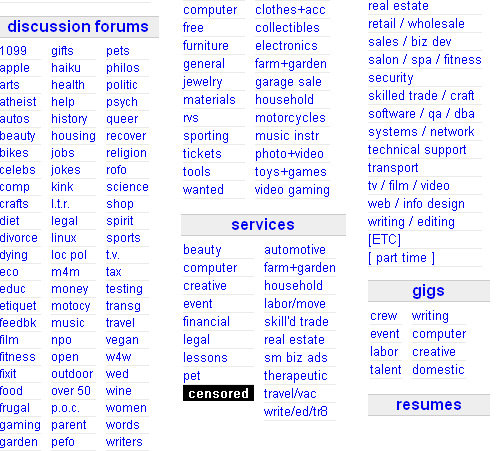Mercy for Animals has written a letter to Vimeo trying to get an investigative video exposing animal cruelty at the E6 Cattle Co. reinstated on the site after it was pulled as a violation of Vimeo’s terms of service. If you’re unfamiliar with the story up to this point, allow me to quickly summarize.
Last week, Mercy For Animals sent us a letter it had written to YouTube after that site had pulled the same video. YouTube had previously labeled it a “gross out video” and banned it. After our initial report on that, YouTube took another look and reinstated the video, adding a warning. Meanwhile, Vimeo had originally allowed the video. We embedded it on our original article, only to find later that they had decided to pull it around the same time YouTube reinstated it. YouTube told us that sometimes they make the wrong call. Vimeo told us:
“We removed this particular video because of its depiction of excessive violence against animals. While we understand that the point of the video is to protest cruel practices against cattle and we are sympathetic to that cause, it nonetheless violates our Terms of Service.”
Now, Mercy for Animals Executive Director Nathan Runkle has written another letter, this time to Vimeo, and shared that with us as well. Here it is in its entirety (minus Runkle’s contact info):
Dear Mr. Klein:
I am writing on behalf of Mercy For Animals (MFA), a national, non-profit animal protection organization, to ask that you reinstate the “No Mercy – Calf Farm Cruelty Exposed” video on Vimeo. The video can be viewed via YouTube at www.mercyforanimals.org/calves.
Earlier this week, MFA’s “No Mercy” video documenting routine abuse of calves raised for the dairy industry at E6 Cattle Company in Texas was removed from the Vimeo website. We have learned through a WebProNews.com article that Vimeo removed the video because it violates the company’s Terms of Service. According to the article, a Vimeo spokesperson stated: “Vimeo cares deeply about the issue of animal cruelty and has specifically banned content that contains gratuitous animal cruelty… While we understand that the point of the video is to protest cruel practices against cattle and we are sympathetic to that cause, it nonetheless violates our Terms of Service.”
We understand the importance of prohibiting videos of gratuitous animal cruelty, but “gratuitous” means “lacking good reason.” MFA’s videos document egregious cruelty to animals, but for a very good reason: to expose and end animal abuse. While we admire their intent, it would be more beneficial to animals if Vimeo created a clear policy against “glamorized” animal abuse videos instead of censoring educational videos and effectively shielding animal abusers from public scrutiny. MFA’s groundbreaking investigations have a long history of leading to successful criminal prosecutions of animal abusers, raids of factory farms, corporate animal welfare policy reforms and increased legal protection for animals – all testament to the crucial role these videos play in preventing cruelty and educating consumers. Censoring these videos is counter productive and harmful to the animals Vimeo claims to care so deeply about.
MFA’s meaningful gains for animals include the results of our Conklin Dairy investigation, which was widely viewed on Vimeo and exposed animals being beaten in the face with metal pipes, repeatedly stabbed with pitchforks, having their tails broken, and being kicked, thrown, and punched by employees. Upon release of the investigative video, a farm worker was arrested and charged with 12 counts of cruelty-to-animals, numerous dairy suppliers ended their relationships with the facility, support was generated for a statewide animal protection initiative, and consumers nationwide learned about the dark side of dairy production.
A 2009 MFA investigation at an egg farm in Maine, which was posted on Vimeo, prompted the Maine Department of Agriculture and state police to raid the farm on grounds of cruelty to animals. Grocery chains nationwide dropped the farm as an egg supplier, and as part of a landmark civil settlement, the mega-farm pleaded guilty to 10 counts of cruelty to animals, agreed to pay over $130,000 in fines and restitution, and handed over authority to the state of Maine to conduct unannounced inspections of the
facility for the following five years.
The “No Mercy” video posted on Vimeo is part of MFA’s important mission to educate consumers and bring justice to animals who are routinely tortured and killed in factory farms and slaughterhouses. It is vital to our efforts to hold the E6 Cattle Company and its owner accountable for egregious cruelty to animals and that the public be able to access and disseminate this video. We respectfully request that the “No Mercy” video be reinstated on Vimeo as soon as possible, in order to help us bring these animal abusers to justice.
Thank you for your time and consideration. You may contact me directly at…
I look forward to your positive
response.
Sincerely,
Nathan Runkle
Executive Director
Here is the video, in case you haven’t seen it by now (warning: graphic and disturbing):
As of the time of this writing, the video is still missing from Vimeo. Currently it has over 1,800 views. We have to wonder how many more it would have if sites would stop pulling it. As is clear from the comments we’ve received on our coverage of the story. People feel very passionately about the content of this video, and its need to be exposed. It will be interesting to see if Vimeo follows YouTube’s lead and/or alters its ToS, or if it stands its ground on the content.
Runkle certainly raises a good point about the word “gratuitous”. Do you think Vimeo should reinstate the video and adjust its terms of service? Tell us what you think.








 Let’s get the paperwork-related story out of the way first.
Let’s get the paperwork-related story out of the way first.  Nicole Wong, Vice President and Deputy General Counsel, spoke today about China, the Internet, and censorship, and by way of recap, said, "The attack on our corporate infrastructure and the surveillance it uncovered – as well as attempts over the past year to limit free speech on the Web even further – led us to conclude that we are no longer willing to censor our results in China and we are currently reviewing our options."
Nicole Wong, Vice President and Deputy General Counsel, spoke today about China, the Internet, and censorship, and by way of recap, said, "The attack on our corporate infrastructure and the surveillance it uncovered – as well as attempts over the past year to limit free speech on the Web even further – led us to conclude that we are no longer willing to censor our results in China and we are currently reviewing our options." According to
According to 
 According to
According to